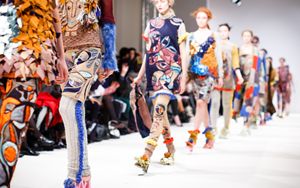(Finance) – In recent days, the European Parliament’s environment commission has approved the new recommendations “for a circular and sustainable production of fabrics”, with 68 votes in favor and none against. Objective save the environment and relaunch European fashion by eliminating competition from those who produce in countries that do not respect the sustainability and human rights.
In the viewfinder, in particular, the ‘fast fashion’, of which the text also establishes a definition: “the combination of high volumes of lower quality garments at low price levels”.
The Ffast fashion – it reads – “which allows for a constant availability of new styles at very low prices, has led to a sharp increase in the amount of garments produced, used and then discarded. To cope with the impact this phenomenon has on the environment, the EU intends to reduce textile waste by increasing the life cycle and recycling of textiles as an integral part of the plan to achieve a circular economy by 2050″.
And again: “the textile production needs to use a lot of water, without counting the use of land used for the cultivation of cotton and other fibers. It is estimated that the textile and clothing industry globally used 79 billion cubic meters of water in 2015, while in 2017 the needs of the entire EU economy amounted to 266 billion cubic metres. Some estimates indicate that 2,700 liters of fresh water are needed to make a single cotton shirt, a volume equal to what a person would need to drink in 2 1/2 years. In 2020, the textile sector was the third source of degradation of water resources and land use. In that year, an average of nine cubic meters of water, 400 square meters of land and 391 kilograms of raw materials were needed to provide clothes and shoes for every EU citizen.”
And precisely in this perspective of looking at the greens, The first round table on fashion policies was held yesterday in Brussels. The fashion industry is at “a turning point” said the coordinator of the European Parliament’s research and industry committee Christian Ehler during the European Fashion Alliance (EFA) meeting in the European Parliament. The alliance, founded in Frankfurt in June 2022 and made up of 23 countries, aims to strengthen the European fashion ecosystem by encouraging the transition towards a more sustainable future. “Until now we didn’t have an interlocutor in fashion” Ehler wanted to underline, recalling that until now it had been the individual countries ad make the proposals.
They are on the plate 3.2 billion made available by Europe for a research program in the creative industry which however involves not only fashion, which will be joined at the end of the year by a further billion for a program on textile research. Ehler therefore invited the fashion companies to send the projects: “The money is there and it’s already there.”
(Photo: by Kris Atomic on Unsplash)
